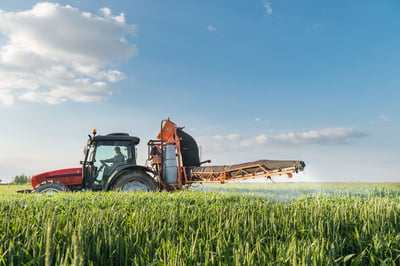Logistics essentials for agriculture companies
The agriculture industry has a wide range of logistics considerations, including transporting large equipment, and importing/exporting products with varying requirements.
Some of the most common agriculture logistics scenarios, include:
- Importing/exporting large agricultural equipment (combines, harvesters, planters) and implements between the U.S. and Canada.
- Importing seeds (i.e. corn, canola, soybean, vegetable) and grain for various end uses, including propagation, animal feed, research, conditioning other than cleaning, and others.
- Produce and seeds imported from the U.S. that originate in foreign countries.
- Seed shipments going to authorized facilities and non-authorized facilities.
- Importing/exporting of herbicides, pesticides, and inoculant.
So, what do ag companies need to consider from a customs and freight perspective?
Logistics considerations for agriculture
One major consideration is CFIA (Canadian Food Inspection Agency) and/or USDA (U.S. Department of Agriculture) requirements.
- Read more about CFIA import requirements
- Read more about CFIA export requirements
- Read more about USDA’s import and export requirements
Canada and U.S. customs will also have requirements and regulations to consider.
- Is the product permitted in the U.S./Canada?
- Does it require a permit?
- What other documents may be required?
- Does it require inspection, and if so, do you have an appointment?
If you are importing/exporting vehicles and/or large equipment:
- Used, self-propelled equipment (tractors, combines, etc), requires AES filing by a U.S. company to be done 72 hours in advance of the goods arriving at the Canadian border. The driver will need to report to U.S. Customs before proceeding to Canada Customs.
- Used agriculture equipment must be free of soil.
- Please note: new equipment and used equipment have different requirements with AES filing and the 72 hour rule (used).
- Some ag equipment, such as combines, tractors, cultivators, planters have requirements that exempt them from GST.
- Read more about importing vehicles into Canada.
For companies importing/exporting seeds, grains, vegetables:
- Documentation for seeds being imported depends on the end use of the product. The proper permits or paperwork must be provided in advance for customs clearance. This will prevent delays and/or the product being prevented entry into Canada. For example, canola for research requires an import permit.
- Take the time to understand CFIA’s timeframes. They advise four hours for processing an entry, but it can take longer.
- While Canada does have a free trade agreement with the U.S., there are certain restrictions and not all products are permitted. For example, grain screenings are generally not allowed into Canada, and there are strict regulations regarding this.
Best logistics practices for agriculture companies
- Do your research. Know your product, including the end use (particularly relevant for seeds). Find out the requirements before importing or purchasing the products.
- Get familiar with CFIA and USDA requirements, so you know which documents are required prior to shipping.
- Read up on the Canadian Seed Institute website. Apply to become an authorized importer if you are a facility looking to import and release common and pedigreed seed for sale in Canada.
- If you’re bringing in a new product, call your customs broker and ask about rules, regulations, and requirements.
- Give your logistics partner as much lead time as possible and send them your documentation as soon as you can.
Working with a regulated and experienced logistics partner can help make your import/export experience smooth and efficient. Cole has supported agriculture companies with their logistics needs for more than 60 years. We’re here to help.
Agriculture Logistics. It's what we do.
Suggested Articles on Logistics Essentials:
Five Oil & Gas Logistics Essentials

